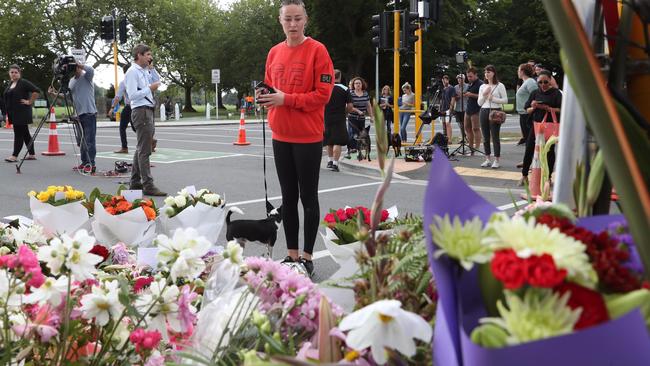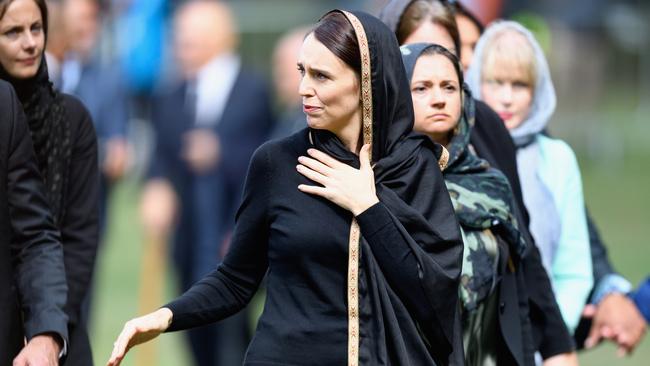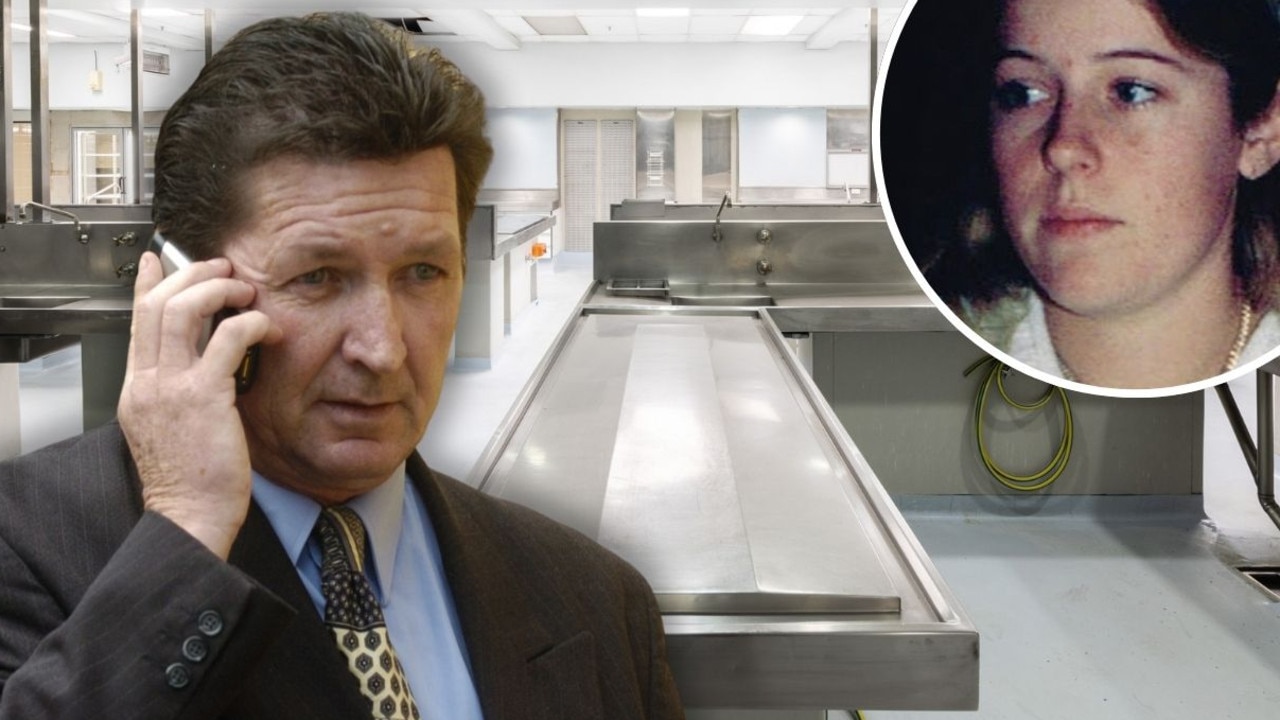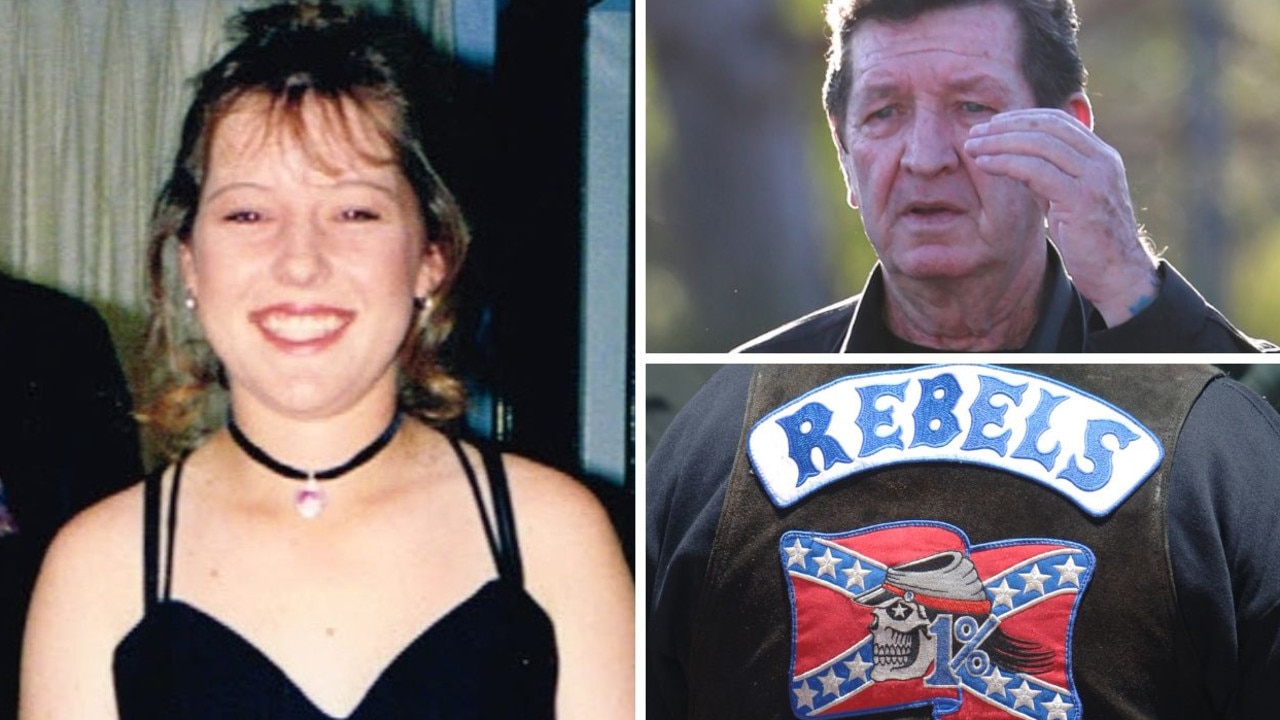White extremists ‘can’t help but brag’ on social media
The social media giants have been told to do more to identify terrorists-in-the-making amid warnings another Christchurch massacre ‘could happen tomorrow’.
True Crime
Don't miss out on the headlines from True Crime. Followed categories will be added to My News.
“But these white extremists, they just operate in the open. They don’t care. They can’t help themselves but brag.”
New Zealand’s Chief Censor has called on social media giants to do more to identify terrorists-in-the-making on their platforms following the Christchurch massacre, amid warnings “this could happen again tomorrow”.
David Shanks, who spoke at the eSafety 19 conference in Sydney yesterday, said research showed “white extremists (were still operating) in the open” on social networks even after global outcry over viral footage of the New Zealand attack, and new “interventions” were desperately needed to stop troubled users being radicalised.

But the plan received only in-principle support from Twitter at the event as global public policy head Colin Crowell instead blamed “darker places of the internet” for hosting clues to terrorist behaviour and called for more research.
Mr Shanks, who dealt with the online fallout from the live-streamed murders of more than 51 worshippers on March 15, said social networks had improved responses to terrorist footage in the last six months but more changes were needed to prevent further mass killings.
He said white nationalists did not “just get up one morning and go, ‘I’m going to carry out a mass, racially motivated attack’,” but transitioned through stages of radicalisation which often played out in public internet forums.
“Muslim extremists and terrorists, they know they’re being monitored and they know they need to be covert and they’re tighter, savvier online operators,” he told News Corp.
“But these white extremists, they just operate in the open. They don’t care. They can’t help themselves but brag.”
Mr Shanks said social networks including Twitter and Facebook should do more to identify individuals openly sharing terrorist content on their networks as part of an industry-wide effort against extremist behaviour.
“We need to take a collaborative approach to this with regulators, law enforcement, and platforms working in the national interest of all countries,” he said.
“We have to recognise these terrorists are a threat to everyone. This could happen again tomorrow.”

MORE NEWS:
Australia bans hateful eight websites
Inside the ‘black hole of evil’ holding Aussie tourists
But while Mr Crowell acknowledged Twitter could play a role in identifying extremists, he said information gathered from other, less accessible platforms was required in many cases.
“That’s a very difficult conversation in many respects,” he said.
“Some of the stuff that investigators find subsequently are on darker places of the internet, less visible in public, and you can pull together those threads and pull together a profile.”
Mr Crowell said the Christchurch attack provided “novel issues for (Twitter) in ways we had not seen before” and the company would “look to” working with academics to establish ways to identify radicalised users and intervene in future.
Despite calling for more action, Mr Shanks said he was heartened by the response of mass media and some internet companies, including CloudFlare.
The online security provider withdrew support for fringe websites 8chan and Daily Stormer last month, ultimately shutting them down.

8chan infamously hosted a manifesto from the alleged Christchurch shooter that was later credited as the inspiration behind two American mass shootings in El Paso and Poway.
“After (the) El Paso (shooting), I went to work thinking how many attacks need to be planned and broadcast and celebrated on (8chan) before someone says enough?” Mr Shanks said. “If it’s not three, then is it 10, 20, or 100 attacks?”
New Zealand officials, including Mr Shanks, are expected to hold talks with eSafety Commissioner Julie Inman Grant at the conference about Australia’s new content-blocking scheme that banned eight websites still hosting content from the Christchurch attack this week.
New Zealand currently does not block websites but the country’s censorship laws include punishments of up to 14 years in prison for anyone distributing content that has been classified as “objectionable”.
Originally published as White extremists ‘can’t help but brag’ on social media


